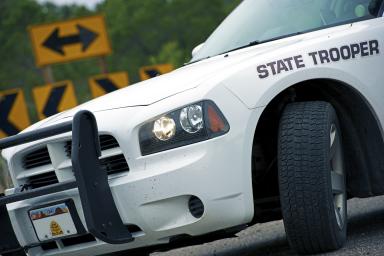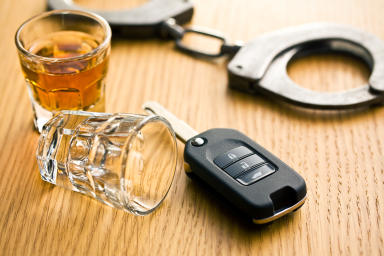Alabama DUI Laws

Alabama, also called the Heart of Dixie, is a state famous for its Southern hospitality, Gulf Shores beaches, and production of peanuts and cotton. But while the Yellowhammer State has rich, vibrant resources and a thriving economy, it is also no stranger to accidents on the road.
According to the CDC, over 10,000 people die in incidents involving alcohol-impaired drivers in the United States each year. Unfortunately, drunk driving accidents that result in death are more common in Alabama than in other states. Based on a SafeWise study, the state had the seventh highest incidence of drunk driving deaths in the U.S. in 2019, behind Montana, Wyoming, South Carolina, Mississippi, New Mexico, and South Dakota. The rate of 5.03 deaths per 100,000 people, in particular, is higher than the national rate of 3.3. To reduce car collisions and fatalities, the Alabama Office of Highway Safety collaborates with local and state entities to develop and implement a variety of programs.
This article will discuss various laws tackling driving under the influence, including the legal limit in the state, penalties one may incur in a DUI, and dram shop liability requirements. In the event that you are arrested for DUI or if you are a victim pursuing damages for injuries caused by a drunk driver, contact an attorney who can help you with your case.
The Legal Limit in Alabama
In Alabama, there is no distinction between "driving under the influence" (DUI) and "driving while impaired/intoxicated" (DWI). This means that it is illegal for a driver to operate a vehicle while under the influence of any substance, including alcohol and drugs like painkillers, antihistamines, and sleeping aids.
As per the Alabama Code, a person should not drive or be in actual physical control of any vehicle if:
They are under the influence of alcohol, drugs, or any other controlled substance that renders them incapable of driving a vehicle safely.
They have a blood alcohol concentration of 0.08% or more.
For school bus and daycare drivers, the BAC limit is stricter at 0.02%. Meanwhile, for commercial drivers, the BAC limit is 0.04%. For underage DUI, Alabama has a zero-tolerance drinking policy. In this situation, even if the driver's BAC is less than 0.08%, they can still be charged. If you are caught driving with a BAC level higher than these legal limits, you may face penalties.
Aggravated DUI in Alabama
A first DUI violation in Alabama is often classified as a misdemeanor. However, if there are aggravating factors in your case, you may face greater criminal penalties or potentially a felony charge. These factors are as follows:
If you are discovered to have a BAC of 0.15% or above while driving, your penalties will be doubled.
If you have a child under the age of 14 in the car at the time of the offense, your sentence will at least be doubled.
If you cause serious physical injury while driving under the influence, your case will most certainly be designated as a Class B felony, punishable by a $30,000 fine and up to 20 years in prison.
If you are driving under the influence and cause an accident resulting in another person’s death, your case will be regarded as a Class B felony for vehicular manslaughter.
Implied Consent Law in Alabama
If you are formally arrested for driving under the influence of alcohol or drugs in Alabama, one of the first concerns that may come to mind is the question: Can you refuse a chemical test after an arrest?
The state enforces the Implied Consent Law, which states that any motorist who drives a vehicle on public roads automatically consents to submit to a chemical test if ordered to do so by a law enforcement officer. Blood, breath, and urine tests that assess BAC or drugs in the driver's system are among the procedures that can be done. Both licensed and unlicensed drivers are subject to this law.
While you may refuse a DUI chemical test if you are lawfully arrested, doing so will result in consequences. For the first rejection, you will face a 90-day license suspension and be unable to obtain a restricted license during this time. These sanctions are in addition to any penalties you may incur from a DUI conviction. For the second or subsequent rejection within the last ten years, the license suspension will be raised to one year. Furthermore, the prosecutor is authorized by law to use the refusal to take a breath test as evidence in a criminal court case, citing that this particular action is an implied admission of guilt.
But what about preliminary alcohol screening tests performed on the roadside? A preliminary alcohol screening test, or PAS, is a breath test performed prior to an arrest. The goal of this procedure is to help officers determine if there is legal ground to arrest you for DUI. You will be asked to blow into a breathalyzer to determine your BAC. It is also entirely voluntary; if you decline a PAS, you will face no legal consequences. However, you must still take the test if you are under 18 or on parole.
Alabama Dram Shop Act
A DUI case primarily involves two parties: the victim/s and the drunk driver who caused the injury. But what if a third party is involved? Suppose a driver, who'd already been drunk, continued to drink alcohol in a bar and inevitably figured in an accident. Even though the defendant was clearly inebriated, the establishment nonetheless served them more drinks. Can the victim also sue the bar?
Yes, Alabama's dram shop laws state that vendors that sell or serve alcoholic beverages can be held liable for damages caused by intoxicated drivers. This particular law, called the Alabama Dram Shop Act, allows the plaintiff to file a joint or separate civil action against the defendant and the individual or business that provided the liquor. For example, if the driver got drunk in a restaurant and caused an accident that resulted in injuries, the victim can also sue the restaurant. This law also applies if the establishment provides alcohol to a minor.
On April 19, 2023, the Alabama Dram Shop Act was updated. The Dram Shop Liability Act (SB104) modifies an important provision — the "strict liability" criterion that applies to shops is now replaced with a new "knowing" condition. Previously, one could sue a vendor who provided liquor regardless of whether the driver was drunk or sober before the accident. Now, one can initiate a lawsuit if the merchant knowingly sold or distributed alcohol to the driver even though he or she was already drunk, leading to injury or death. The plaintiff must additionally show direct evidence that the sale, furnishing, or serving of the alcohol caused the injury.
For example, a bartender saw a customer who was already inebriated enter the establishment. They then decided to serve the customer more liquor, making the latter even more intoxicated, and crash their car into a pedestrian later. In this case, the bartender was legally liable, as visible intoxication was detected during service.
Alabama Dram Shop Liability Insurance Requirements
The Alabama ABC Board takes charge of distributing, licensing, and enforcing alcoholic beverage regulations throughout the state. Any establishment with a license to sell alcohol must always have liquid liability insurance, according to ABC Rules and Regulations. This coverage must be at least $100,000 per occurrence. It is critical to remember that the insurance is independent of lawyer fees or other costs involved in defending any claim brought against the insurer.
A retailer must also acquire a certificate of liquor liability insurance from a reputable insurance carrier that proves they have insurance worth at least $100,000, valid for the license year for which the application is submitted. Additionally, the certificate must state that if the policy is cancelled before the expiration date, the insurer will notify the Alabama ABC Board immediately.
Failure to carry dram shop liability insurance will result in either a citation or the suspension of their ABC license.
What Are the Penalties for a DUI in Alabama?
The penalties for a DUI in Alabama are determined by how many convictions you have had in the last ten years. Fines, jail time, license suspension, and the use of an ignition interlock device are among the sanctions. Below is a table listing the penalties you may receive for first, second, and third offenses in Alabama:
Furthermore, your case will be considered a Class C felony for the fourth and subsequent offenses. The penalties will then be more severe, including state prison sentences ranging from one year and a day to ten years, fines ranging from $4,100 to $10,100, a five-year license suspension, and four years of IID installation.
Penalties for Alabamians Under the Age of 21
The punishment for an underage DUI is determined by the BAC level detected in the driver's system. For the first offense, an underage motorist with a BAC between 0.02% and 0.08% faces a 30-day license suspension and no jail time. However, if the BAC is between 0.08% and 0.15%, they will face the regular penalties for a first offense. For second and future violations, the leniency will be removed.
How Much Can Someone Sue for a Drunk Driving Injury in Alabama?
Two types of damages can be granted in a DUI settlement: economic and non-economic. Economic damages are awarded to compensate you for monetary losses such as medical bills, lost wages, property damage, and other injury-related expenses. Meanwhile, non-economic damages are those without monetary value, like pain and suffering or emotional anguish. While some states have a cap on these, Alabama does not. This means the majority of claimants in the state will be able to receive as much compensation as they need.
Punitive damages, on the other hand, have certain limitations. They are granted when it is proven that the defendant acted maliciously. Punitive damages are more likely to be awarded in DUI claims if the offender is determined to be considerably intoxicated or has intentionally neglected the safety of others.
The Alabama Code stipulates that no punitive damages shall exceed three times the compensatory amount or $500,000, whichever is greater, in most civil proceedings. Meanwhile, the cap on personal injury lawsuits is higher: three times the compensatory damages or $1,500,000, whichever is greater. If the defendant is a small business, no punitive damage award should exceed $50,000 or 10% of the net worth of the business, whichever is greater.
Another crucial thing to note is that Alabama is a contributory negligence state. This means that if you are somewhat to blame for the accident, even if your fault is 1%, you can no longer seek compensation from the defendant. However, there are exceptions to the rule — plaintiffs under the age of 14 or those with mental disabilities cannot be contributorily negligent. In addition, if the driver insisted on driving while fully knowing they were drunk, the other party may still be compensated.
The Statute of Limitations in Alabama
The statute of limitations for DUI cases in Alabama varies depending on whether the action you want to file is civil or criminal. If you wish to file a personal injury claim with either the insurance company or the at-fault party, you have two years from the date of the accident to launch a DUI lawsuit.
In other cases, the time limit does not apply right away. For example, if the victim is under 19 or declared insane, they are considered to have a "legal disability" in the state. The two-year period begins when they turn 19 or are declared sane. Moreover, the court cannot extend the filing date if the accident occurred more than 20 years ago.
If the case is a criminal one, the statute of limitations depends on how the case is classified. If the DUI is classified as a misdemeanor, the prosecutor must start the action within 12 months after the offense. If the DUI is a felony, the time limit is five years. An exception applies if the DUI resulted in serious physical injury or death or if there was violence against a person (including threats of violence and attempts); in this case, the time limit is removed and the prosecution can start at any time.
Resources for DUI Defendants and Drunk Driving Injury Victims in Alabama
Alabama State Bar's Lawyer Referral Service
The Alabama State Bar offers a variety of services and initiatives to assist individuals with a wide range of legal issues, including DUI. One of their projects is the Lawyer Referral Service, which focuses on connecting the public with a qualified attorney who can meet their needs. Lawyers who participate in this program are licensed members of the ASB and carry professional liability insurance worth at least $100,000. To receive a referral, you must first agree to the Terms of Service in the LRS form. To begin the LRS process, dial the toll-free number at 1-800-392-5660.
Alabama Department of Transportation
ALDOT is a state organization tasked with improving the transportation system in all modes. It carries out a wide range of engineering, safety, and environmental activities and projects that not only support development and safety while maintaining transportation infrastructure, but also aid motorists in traversing state highways. The Alabama Service Assistance Patrol, one of its initiatives, comprises a team that supervises roads and takes charge of road maintenance, driver support, and traffic incident management.
Alabama Administrative Office of Courts
The Alabama Administrative Office of Courts/Alabama Judicial System operates the state’s Court Referral Program, an educational curriculum aimed at minimizing alcohol and drug-related crimes and assisting DUI defendants in addressing their alcohol and drug problems. Its classes cover various topics, including the impact of alcohol and drugs, DUI laws and penalties in Alabama, and coping methods. The program has three levels, depending on the severity of one’s alcohol or drug addiction. It also offers a curriculum for Alabamans under the age of 21. There are more than 120 certified Level 1, Level 2, and Youth and Juvenile Instructors across the state. In addition, the Alabama AOC website provides access to a wide range of forms required in civil or criminal action.
Expertise.com StaffAuthor
Step into the world of Expertise.com, your go-to hub for credible insights. We don't take accuracy lightly around here. Our squad of expert reviewers, each a maestro in their field, has given the green light to every single article you'll find. From rigorous fact-checking to meticulous evaluations of service providers, we've got it all covered. So feel free to dive in and explore. The information you'll uncover has been stamped with the seal of approval by our top-notch experts.




